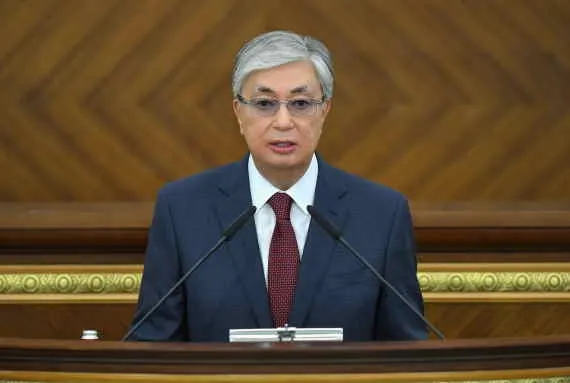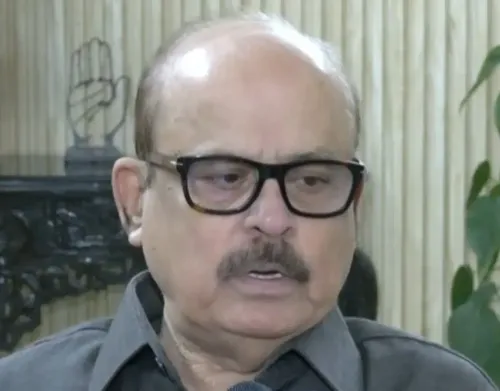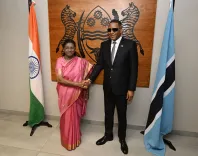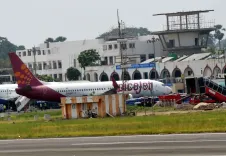How is Kazakh President Advocating for Enhanced Cooperation at the UN Conference?

Synopsis
Key Takeaways
- Kazakh President's call for global partnerships
- Importance of regional connectivity
- Challenges faced by landlocked developing countries
- Need for innovative financing solutions
- Climate change impacts on LLDCs
Ashgabat, Aug 6 (NationPress) The President of Kazakhstan, Kassym-Jomart Tokayev, emphasized the need for strengthened global partnerships, improved regional connectivity, and inclusive, sustainable development during his address at the Third UN Conference on Landlocked Developing Countries (LLDCs). He pointed out that LLDCs, which are home to over 500 million individuals across diverse continents, encounter significant and ongoing challenges such as limited access to finance, global markets, and regional transportation, alongside heightened vulnerability to geopolitical tensions and severe disruptions in supply chains.
"These limitations exacerbate poverty and hinder competitiveness," Tokayev stated, advocating for deeper regional collaboration and a more robust representation of LLDCs in global forums and multilateral institutions. He urged for innovative financing solutions and a strong political commitment from both transit nations and international development entities to stimulate investment in transportation, renewable energy, and digital sectors, as reported by Xinhua news agency.
Additionally, President Tokayev stressed the urgent issues posed by climate change, such as water scarcity, glacier depletion, and rapid desertification, while emphasizing Kazakhstan's substantial efforts to enhance regional connectivity by developing crucial transit corridors throughout Central Asia.
"Central Asia is transitioning from being landlocked to landlinked," he remarked, advocating for broader regional collaboration and multilateral initiatives to transform geographic challenges into significant opportunities for sustained prosperity.
Landlocked Developing Countries (LLDCs) are often at a disadvantage: without direct access to the sea, they face ongoing struggles with international trade, connectivity, and economic development on both national and regional fronts.
Isolated from global markets and lacking the resources to establish sufficient transport and logistics frameworks, LLDCs encounter unique and considerable hurdles in meeting the Sustainable Development Goals set by the international community.
The Third UN Conference on Landlocked Developing Countries presents a vital opportunity to forge meaningful partnerships, collaborations, and coordinated efforts aimed at unlocking the untapped potential of these nations.
Strategic partnerships, innovative solutions, and increased foreign investment can effectively address these complex challenges, facilitating more inclusive and resilient growth trajectories for the involved nations.
int/bpd/vd









